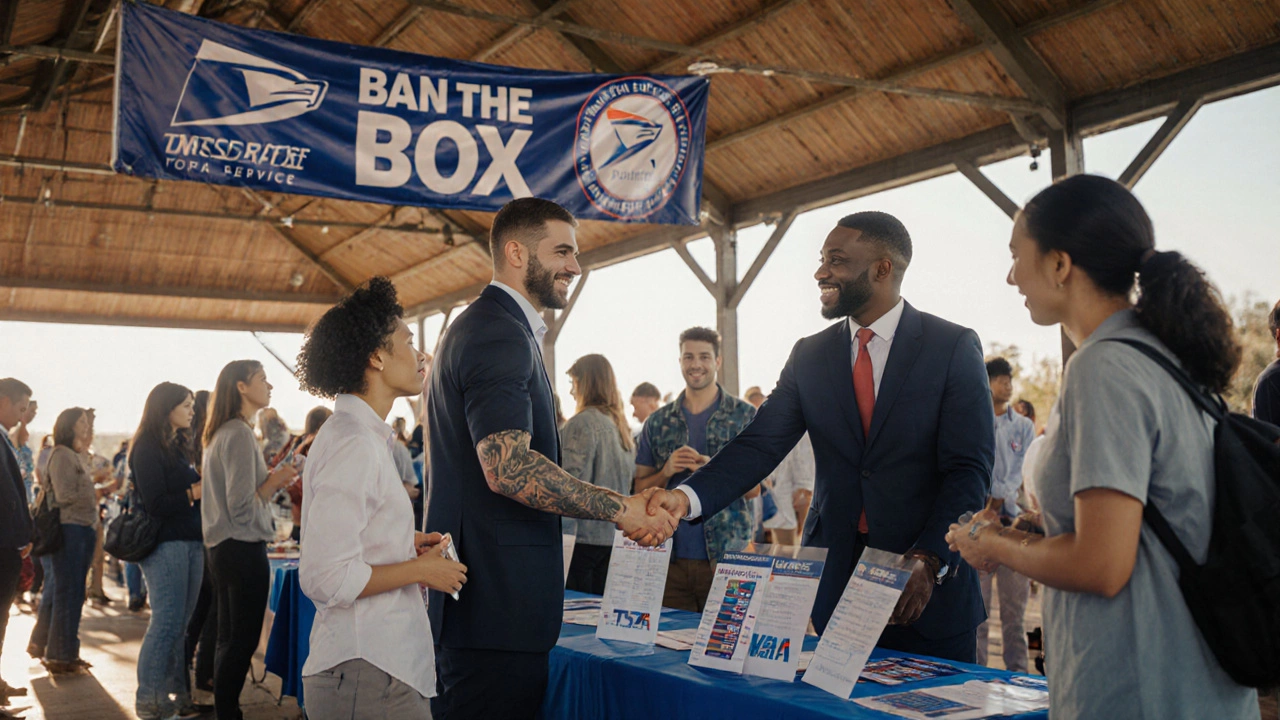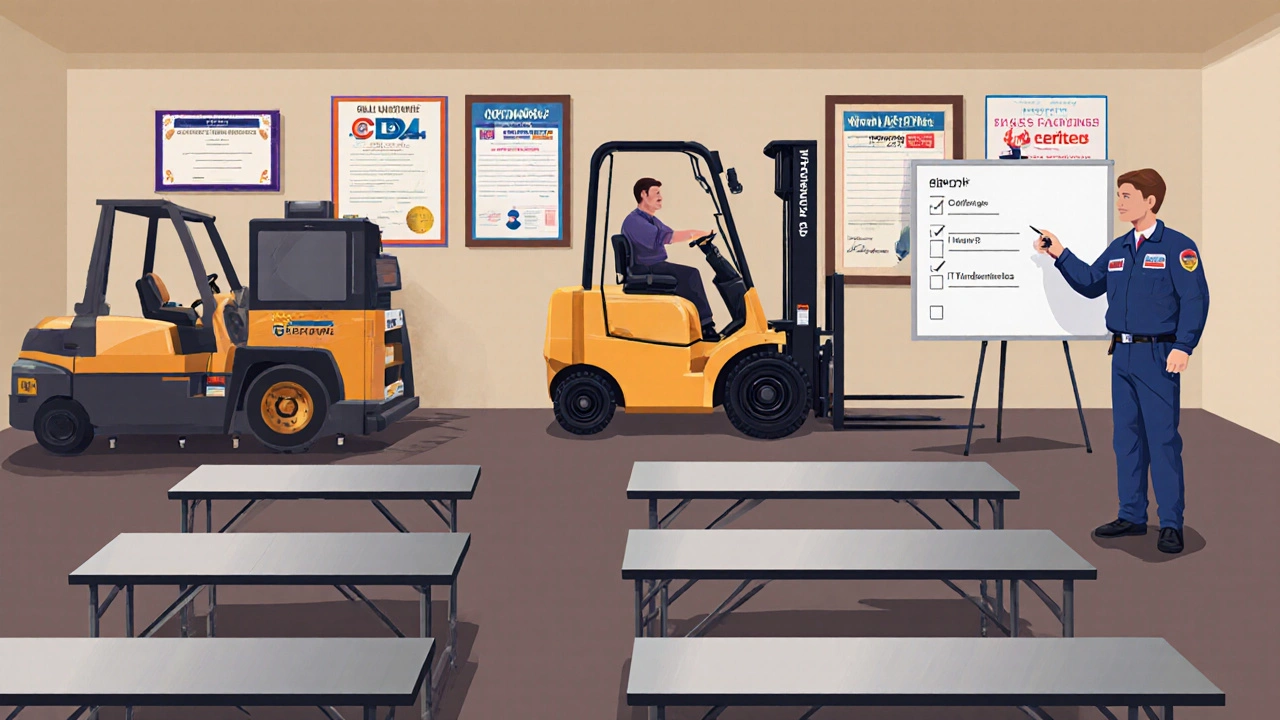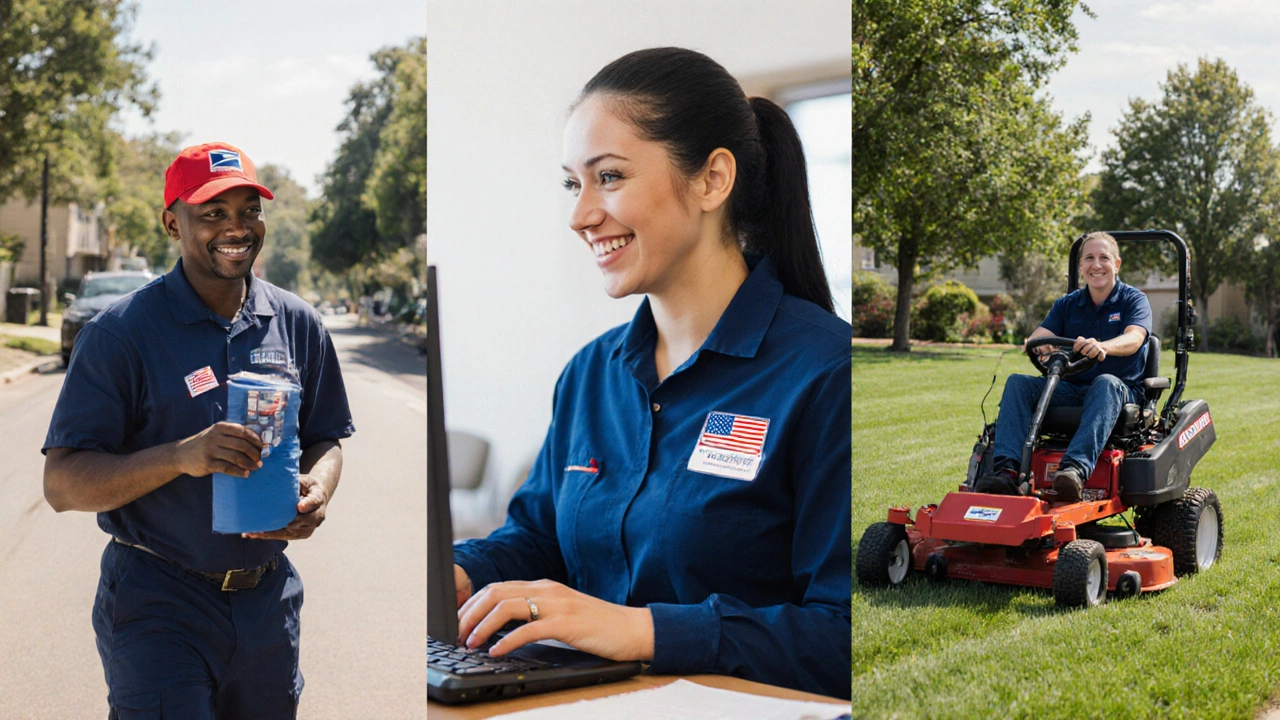Oct
24

- by Dhruv Ainsley
- 0 Comments
Government Job Match Tool for Felons
Find Jobs That Fit Your Background
Answer a few questions to get personalized government job recommendations based on your conviction type and time since conviction.
Your Recommended Jobs
Key Preparation Steps
Quick Takeaways
- Many government agencies actively hire people with criminal records, especially for entry‑level or support roles.
- Key programs like "Ban the Box" and dedicated re‑entry services can smooth the application process.
- Targeted certifications (e.g., CDL, forklift, IT basics) boost your chances dramatically.
- Top federal and state positions for felons include postal delivery, veteran services, correctional facility support, and transportation security.
- Follow a step‑by‑step preparation plan: clean up paperwork, gain training, use veteran or disability resources, and tailor your résumé.
Understanding the Employment Landscape for Felons
When a criminal record shows up on a résumé, most people assume every door is shut. The reality is far more nuanced. In the United States and Australia, legal frameworks and specific hiring policies create pockets of opportunity, especially within the public sector.
Government Jobs for Felons are positions within federal, state, or local agencies that either explicitly permit hiring individuals with convictions or do not consider a record a disqualifying factor after a set waiting period. These roles often focus on reliability, physical stamina, and a willingness to follow strict procedures-traits that many former offenders develop during incarceration or community service.
Two major forces shape this landscape:
- Legislative incentives. Laws such as the U.S. "Ban the Box" initiative (which removes the criminal‑history question from the first job‑application screen) or Australia’s National Employment Standards encourage fair‑chance hiring.
- Re‑entry programs. Organizations like the Department of Veterans Affairs (VA) and Workforce Australia run targeted training, mentorship, and job‑placement services for people leaving prison.
Government Sectors That Frequently Hire Felons
Not every agency is open to hiring people with convictions, but several large employers consistently report higher acceptance rates.
| Agency / Program | Typical Salary (AU$/US$) | Key Requirement | Training Length | Felon‑Friendly Rating |
|---|---|---|---|---|
| U.S. Postal Service (USPS) | US$45,000 | Valid driver’s licence, background check | 2‑4 weeks | High |
| Department of Veterans Affairs (VA) | US$48,000 | Veteran status (often preferred), basic IT or admin skills | 1‑3 months | High |
| State Correctional Facility Support | AU$55,000 | Security clearance tier II, physical fitness | 6‑8 weeks | Medium |
| Transportation Security Administration (TSA) | US$40,000 | Security clearance, drug test | 4‑6 weeks | Medium |
| Local Council Maintenance | AU$42,000 | Trade certificates (e.g., forklift, plumbing) | Varies | Medium |
The "Felon‑Friendly Rating" is a judgment based on public hiring data from 2022‑2024, anecdotal reports, and the presence of explicit fair‑chance policies.

How to Prepare: Education, Certifications, and Clean‑Up Tasks
Preparation is the bridge between a criminal record and a stable paycheck. Below are the most effective steps, ordered by impact.
- Secure your legal paperwork. Obtain your conviction record, understand the exact nature of each charge, and request a certificate of rehabilitation or an expungement if eligible. In Australia, the National Police Checks portal lets you request a clean record after a stipulated period.
- Earn a marketable certification. A Commercial Driver’s Licence (CDL) is a gateway to USPS delivery and many state transport jobs. For office roles, a Certificate III in Business Administration or a CompTIA IT Fundamentals (ITF+) credential shows competence without needing a degree.
- Leverage re‑entry training. Programs such as CareerOneStop’s Reentry Toolkit (US) or Workforce Australia’s Prison to Prisoner Employment Service provide free workshops on résumé writing, interview practice, and on‑the‑job training.
- Build a professional network. Attend job fairs hosted by the VA, local councils, or community groups that focus on ex‑offender employment. Even a brief coffee chat with a current postal worker can give you insider tips on the application timeline.
- Prepare for background checks. Be ready to explain each conviction honestly, focusing on lessons learned and steps taken to rehabilitate. Many agencies value transparency over omission.
Application Strategies That Work
Landing a government job isn’t just about ticking boxes; it’s about navigating the system intelligently.
- Use "Ban the Box" to your advantage. Apply online through USAJobs or the Australian Government Jobs portal; the first screening will skip the criminal‑history question. Only disclose your record when a security clearance or final interview demands it.
- Tailor your résumé. Highlight transferable skills-teamwork, punctuality, safety compliance-before listing any employment gaps. Use action verbs like "maintained" and "operated" to convey reliability.
- Secure strong references. Former supervisors from prison work programs, community mentors, or veteran peers are ideal. A reference who can attest to your character can outweigh a conviction in the eyes of a hiring manager.
- Apply to multiple agencies. Don’t put all eggs in one basket. Even if the USPS has the highest acceptance rate, a backup application to a local council or the VA improves overall odds.
- Follow up politely. After submitting, send a concise email to the HR contact confirming receipt and expressing continued interest. Persistence shows commitment without being pushy.
Top Specific Roles and Why They Fit Felons
Below are five concrete jobs, their day‑to‑day duties, and why they tend to be forgiving of past mistakes.
- Postal Carrier (USPS or Australia Post)
- Daily route delivery, package handling, customer interactions.
- Physical stamina and a clean driving record are the main filters; conviction type rarely blocks entry unless it involves fraud.
- Average earnings: US$45k-AU$55k; benefits include health insurance and retirement plans.
- Veteran Services Assistant (VA)
- Assist veterans with benefits paperwork, schedule appointments, provide basic IT support.
- The VA prioritizes hiring veterans, but many civilian positions are open to anyone with strong customer‑service skills.
- Average earnings: US$48k; training includes a short orientation on confidentiality and HIPAA.
- Correctional Facility Maintenance Worker
- Repair plumbing, electrical, and general building upkeep inside prisons or detention centers.
- Having a prior conviction can be seen as a plus, as you understand the environment.
- Average earnings: AU$55k; clearance tier II required, obtained after a background check.
- Transportation Security Officer (TSA) - Escort Agent
- Screen passengers and baggage, ensure compliance with safety protocols at airports.
- TSA’s hiring rules allow certain non‑violent felonies after a 5‑year waiting period; many applicants succeed after completing the TSA‑prep course.
- Average earnings: US$40k; training is 4‑6 weeks long and includes weapons handling basics.
- Local Council Groundskeeper
- Maintain parks, playgrounds, and public gardens; operate machinery like mowers and chainsaws.
- Accounts for the majority of manual‑labour positions in Australian municipalities, with no blanket ban on prior convictions.
- Average earnings: AU$42k; trade certificates (e.g., Certificate III in Landscaping) are preferred.

Success Stories: Real People Who Got Their Foot Back on the Road
Stories make the abstract concrete. Here are three brief examples that illustrate the steps above in action.
- James, 32, former drug possession conviction (US) - After completing a 12‑week CDL program through a community college, he applied to the USPS using USAJobs. The "Ban the Box" feature let him hide his record until the interview, where he honestly explained the offense and highlighted his perfect driving record. He now delivers mail across Chicago and mentors new hires at the local post office.
- Lena, 27, fraud conviction (Australia) - Lena joined the Workforce Australia Prison to Prisoner Employment Service, earned a Certificate III in Business Administration, and secured a clerk role with the Melbourne City Council. Her supervisor praised her attention to detail, and she was promoted to senior admin after 18 months.
- Mark, 45, ex‑military, assault conviction (US) - Mark leveraged his veteran status, completed the VA’s “Veteran to Civilian” training, and landed a benefits technician job at a VA regional office. The hiring manager noted that Mark’s discipline and empathy were exactly what the role needed.
Each story shares the same pattern: clean up paperwork, gain a credential, use a fair‑chance program, and be upfront during the interview.
Frequently Asked Questions
Can I work for the federal government with a felony?
Yes, many federal agencies hire felons for non‑sensitive positions. Agencies like the U.S. Postal Service, Department of Veterans Affairs, and the Transportation Security Administration have clear guidelines that allow hiring after a waiting period and a background check. The key is to apply for roles that don’t require a top‑secret clearance.
Do I need to disclose my conviction on a résumé?
If the application includes a "Ban the Box" field, you can skip the question until later stages. Otherwise, be honest when asked. Employers value transparency; lying can lead to immediate termination.
What certifications give the biggest boost?
A Commercial Driver’s Licence (CDL) opens postal and transport jobs. IT fundamentals (CompTIA ITF+), basic bookkeeping (Certificate III in Business), and trade certificates (e.g., forklift, landscaping) are also high‑impact.
How long does a background check take for government jobs?
Federal checks in the U.S. usually take 2‑4 weeks after you submit your forms. In Australia, the National Police Check is completed within 10‑15 business days. Plan your applications accordingly.
Are there any government jobs I should avoid?
Roles that require high‑level security clearances (e.g., CIA analyst, TSA Supervisory Officer) often disqualify felony convictions. Focus on entry‑level, logistics, maintenance, or support positions where the clearance level is lower.
Next Steps: Your Personal Action Plan
Turn the advice above into a concrete checklist. Choose a target agency, sign up for a certification within the next month, and schedule a call with a re‑entry counselor. Small, measurable actions keep momentum going and increase the odds of landing the best job for felons you can find in the public sector.





